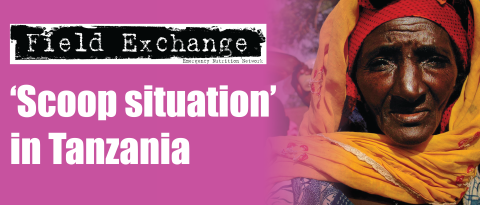WHO/UNICEF Joint Statement on Optimal Iodine Nutrition

WHO/UNICEF have released a joint statement on Reaching Optimal Iodine Nutrition in Pregnant and Lactating Women and Young Children. This statement presents the conclusions of a technical consultation and subsequent follow up meeting in 2005, on the prevention and control of iodine deficiency in pregnant and lactating women and in children less than two years of age.
The primary strategy for sustainable elimination of iodine deficiency remains Universal Salt Iodisation (USI). However new evidence and lessons learned in the last decade show that implementation of salt iodisation programmes may not be feasible in all areas of all countries, thus resulting in insufficient access to iodised salt for some groups within the population. In these cases, as well as strengthening USI programmes, additional complementary strategies are suggested.
As a first step, countries need to assess and categorise the level of implementation of salt iodisation programmes and based on this analysis, revisit the strategy for the control of Iodine Deficiency Disorders (IDD), as necessary. The statement includes guidance on categorisation and the subsequent planning process for additional iodine intake in pregnant and lactating women and young children. Guidelines for decision-making are also given for these population groups in specific situations such as emergencies, amongst displaced people, and in geographically remote areas, where additional iodine intake should be considered. If iodised salt is not accessible in these specific situations, increasing iodine intake is required in the form of iodine supplements for pregnant and lactating women, and a supplement or a complementary food fortified with iodine for children 7- 24 months of age. In cases where it is difficult to reach pregnant women, supplementation to all women of reproductive age is advised.

A woman with a goitre in Ethiopia
Recommended dosages are included for daily or annual supplementation for pregnant women, lactating women, women of reproductive age (15-49y), and for children under 2 years (7 - 24 months). For infants 0-6 months of age, iodine supplementation should be received by the infant through breastmilk, assuming that the infant is exclusively breastfed and that the lactating mother received iodine supplementation.
Monitoring of IDD prevention and control programmes is crucial - whether they are based on fortification or supplementation - to ensure that additional iodine intake is effective in reducing the deficiency, while preventing excessive intake that may lead to adverse health consequences. The monitoring process should include the assessment of coverage and iodine nutrition status.
The joint statement is available at: https://www.who.int/entity/nutrition/publications/WHOStatement_IDD_pregnancy.pdf
For further information, contact: Dept. of Nutrition for Health and Development, WHO, 20, Avenue Appia, 1211 Geneva, Switzerland, email: micronutrients@who.int Or Nutrition Section, Programme Division, UNICEF, 3 United Nations Plaza, New York, NY 10017, USA, email: nutrition@unicef.org
Imported from FEX website


